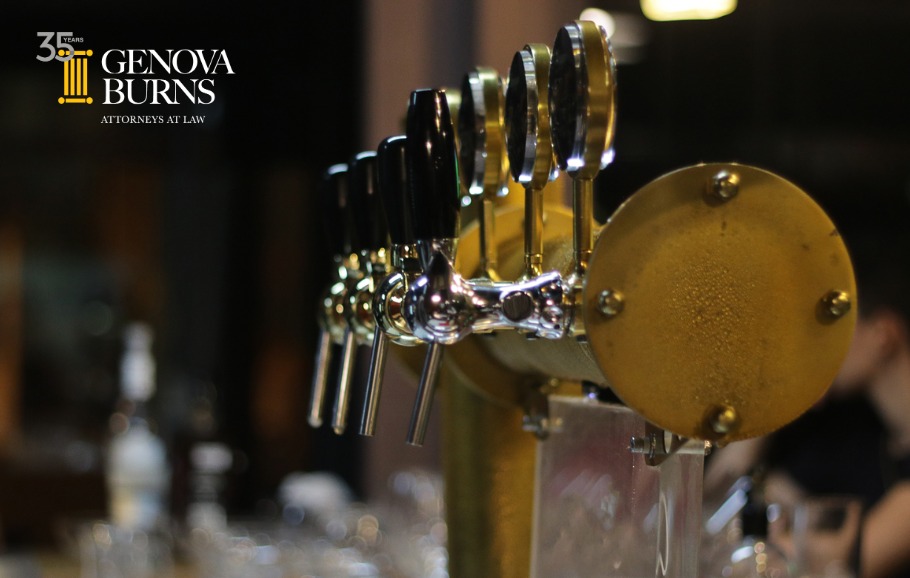Activity in the Legislature Addressing Inactive Licenses and Other Reform
March 12, 2024 | By: Bruno Genova, Esq.
On January 16, 2024, Governor Murphy signed S4265/A5912 into law, reforming New Jersey’s long-standing liquor license practices. The law was enacted to provide open opportunities for new development in communities, in the hope that craft alcohol manufacturers will revitalize business districts across the state. The law aims to harmonize growth with the substantial investments of existing liquor licenses holders. Reforms include making use of inactive licenses, easing restrictions on breweries and distilleries, and creating new types of licenses.
Inactive/Pocket Licenses
The new law no longer allows license holders to indefinitely retain a retail consumption license without using it. This change aims to boost accessibility and will result in about 1,350 licenses returning to the market. This is roughly a 15% increase over the approximately 8,900 active retail licenses presently in use.
Pocket licenses, which are licenses purchased but not attached to a specific location, can now be transferred to bordering municipalities.
Inactive licenses, those associated with a specific location but are not in use, will be required to be used or sold once they become inactive for two consecutive license terms. If the license holder neither uses nor sells the license, it can be transferred to another municipality. Further, the governing body of a municipality where an inactive license lapsed and has not been renewed for the last eight years may issue a new consumption license at public sale for use within the municipality.
The Director of the New Jersey Division of Alcoholic Beverage Control is tasked with dividing the current inactive licenses into four groups based on the total length of time the licenses have been inactive. The group that has been inactive the longest will be transferred within one year of the bill’s effective date, with each group being transferred in four consecutive years.
Breweries, Distilleries, Cideries, and Meaderies
The law eases restrictions on breweries distilleries, cideries, and meaderies, by eliminating the requirement that these establishments provide tours to patrons. These establishments may now hire servers and wait staff, offer snacks and other non-alcoholic beverages, collaborate with outside vendors, host unlimited onsite events, host up to 25 off-site events, and participate in up to 25 events hosted by the holder of a social affairs permit. License holders are now allowed to directly sell and distribute 50% of production and can manufacture 300,000 barrels per year, increased from the previous 10,000 barrel limit.
New Licenses
A new class of retail consumption licenses was established, creating over 100 new licenses across the state. This law will allow municipalities to issue up to two new licenses for food and beverage establishments in shopping malls with a minimum of 750,000 square feet, and up to four new licenses for establishments in shopping malls with a minimum of 1.5 million square feet.
Also established is a new farm-brewery license that permits the licensee to produce up to 2,500 barrels per year of malt alcoholic beverages for retail sale to consumers for consumption off the licensed premises.
Looking to the Future
Despite these targeted progressive changes, the bill does not address the affordability issue. As such, the New Jersey Liquor License Alliance intends to continue pursuing further reforms in the years to come. Governor Murphy has stated himself that more changes must be made responsibly, particularly with the limit of one liquor license per 3,000 residents in each municipality. Governor Murphy plans to focus further reforms on small-business family-owned bars and restaurants.
For more information on these new reforms and other recent legislation, please contact Of Counsel Bruno Genova, Esq. via email here or call 973.646.3261.
Tags: Genova Burns LLC • Bruno Genova • Sydney M. Schubert • Commercial Real Estate & Redevelopment • Liquor License • New Jersey Legislature • Governor Phil Murphy


